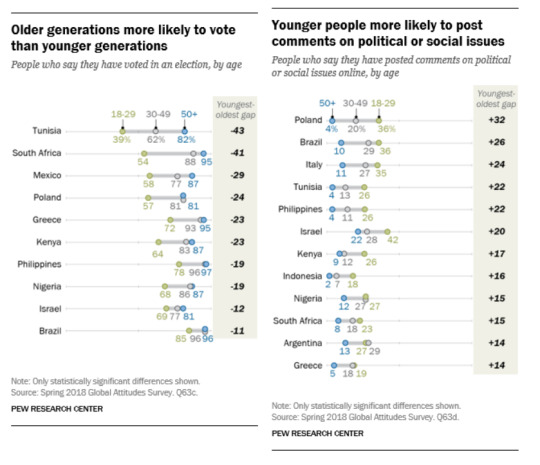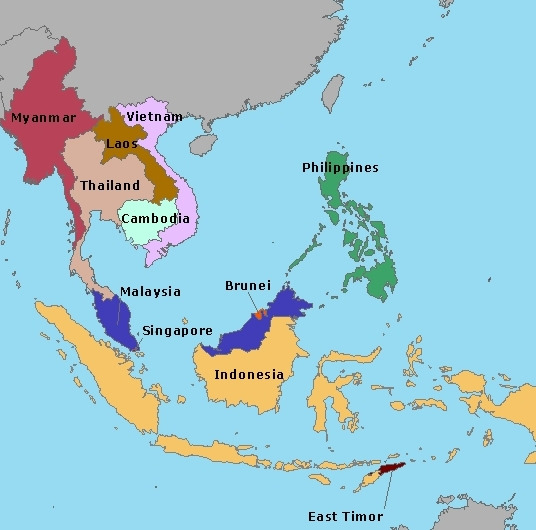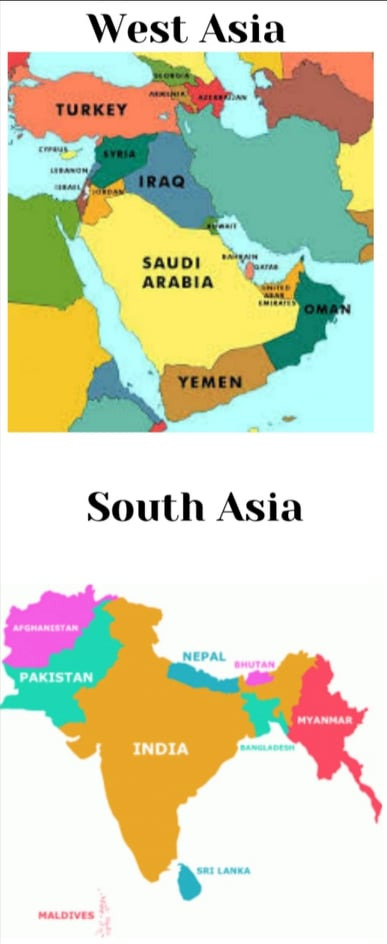#perhaps uniting in the future as elderly people
Explore tagged Tumblr posts
Text
As a complement to that post: You can dislike the Citadel! It's okay, they are... a lot, what they're doing to the spirits has no excuse. But people pile all the guilt onto Suvi's shoulders for defending the place she was born at and grew up in, where she was taught the lingua arcana and promised a future.
That in special: more than her past, her future there. If the Citadel is over, where does she go? Toma is wonderful but is no place for a wizard promised and built for whatever level of greatness, trained for leadership.
I'm sure our own countries have done a lot of shit through history and continues doing as we speak, doesn't mean we wish for some foreign force to come and destroy and invade our homes despite the atrocities.
#makes me wonder about the game's conclusion. I really don't envision it as the three of them walking into the sunset together#they feel like a party meant to part ways at some point#not no contact like before. but not this inseparable#perhaps uniting in the future as elderly people#I would love to see them as an elderly party. Suvi understands Silence and Ame has the same tics as Wren#idk how would eursulon age tho...#wbn#worlds beyond number#suvi the wizard#rambles
70 notes
·
View notes
Text

















World Toilet Day
World Toilet Day…at first glance, this seems like an unlikely candidate for a holiday and more like some sort of joke, but the day is nowhere as trivial or humorous as it may seem. All in all, it strives to draw attention to various sanitation issues around the world and work towards resolving them.
Despite access to proper sanitation being declared a basic human right, one in three people across the globe, so some 2.5 billion people in total, do not have regular access to a toilet. Additionally, even amongst those who do have such access, unclean and unsafe toilets pose problems of their own, including contributing towards the spread of diseases like cholera, typhoid and hepatitis—in some parts of Africa, diarrhea is one of the main child-killers.
Open defecation is also responsible for increasing the number of sexual assaults perpetrated on women and children. Furthermore, when young girls begin menstruating, the lack of privacy forces them to stay home from school, thus limiting their chances of getting a basic education and, what comes after that, a decent job in the future. World Toilet Day’s ultimate goal is to allow everyone on the planet to take care of their most basic needs without having to fear for their safety.
History of World Toilet Day
World Toilet Day was created by the World Toilet Organization in 2001. Secretary-General Ban Ki-moon of the United Nations said: “We have a moral imperative to end open defecation and a duty to ensure women and girls are not at risk of assault and rape simply because they lack a sanitation facility.”
He went on to talk about how having to defecate openly infringes on human safety and dignity, and how women and girls risk rape and abuse as they wait until night falls to relieve themselves because they lack of access to a toilet that offers privacy. Another issue is that toilets generally remain inadequate for populations with special needs, such as the disabled and elderly.
Since its inception, World Toilet Day has played a vital role in challenging governments, businesses and other groups to make changes. It has also worked towards breaking various taboos surrounding the topic, in order to facilitate discussion and lead to the creation of better, safer solutions.
World Toilet Day Timeline
3000 BC Pipes carry waste
Even a few thousand years ago various people groups (in Scotland, India, Mesopotamia and more) would use pipe systems to carry waste out of their houses and into rivers or streams.
100-200 AD Group toilets for soldiers
Remains of Housesteads Roman Fort at Hadrian’s Wall in the UK reveals that perhaps 20 or more soldiers would all use a common ‘toilet’ (essentially these were long benches with holes in them) at the same time.
Middle Ages (500-1500 AD) Garderobes are used
Predating the toilet, “garderobes” were little rooms that hung over the sides of the castle. This little closet had a bench with a hole in it where the waste would drop into a moat or pit below.
During this time, many people would also use chamber pots, which would be kept in bedrooms or ‘chambers’ and then emptied (sometimes simply thrown out the window) when full. This function carried on for quite some time.
1596 Flushing toilet is invented
Although its widespread use did not arrive until a couple of centuries later, the first flushing toilet was described by Sir John Harington, an English courtier. This toilet was a pot that used gravity to feed water through it from a cistern that sat upstairs.
1775 First toilet patent issued
Scottish Inventor Alexander Cummings was the creator of the important pipe that ran in an S-shape below the bowl. This ingenious design used the water in the bowl to seal off the sewer gas from below and eventually led the way to mass production of the toilet.
1829 First toilets in a hotel
The Tremont Hotel in Boston, USA installed eight indoor water closets for its guests.
1866 World’s first bathroom showroom
Marlboro Works showroom is opened by English sanitary engineer Thomas Crapper (yes, that’s his real name). At a time when people didn’t speak much about their bodily functions, this public display of toilets was revolutionary.
1880s Thomas Crapper invents the ballcock
Toilets that have this invention, the “ballcock”, are less likely to overflow. Crapper created the floating valve as well as eight other patented improvements for plumbing and sewage. He also did a lot of plumbing for British royalty around this time.
1910 Elevated water tank
A similar design to today’s toilets, the closed water tank and bowl moves into common use.
1986 Sensor flushes introduced
In Japan, the first toilets with sensors that would flush on their own were used.
2001 World Toilet Organization is created
The World Toilet Organization moves to educate people about the sanitation crisis. Even in today’s modern times, more than 2 billion people across the world still do not have access to a toilet.
2013 World Toilet Day made official by the UN
In an effort to raise awareness and support for places where people don’t have proper access to sanitation, the first UN World Toilet Day is celebrated on November 19, 2013.
How to celebrate World Toilet Day
I think by now it’s been made abundantly clear that World Toilet Day is far from being a joke, dealing instead with the protection of one of humanity’s most basic rights. So how can you help? There are a number of things you could do. For starters, why not visit the World Toilet Day website, Facebook page or Twitter account and share the message across social media platforms?
This may seem like a tiny, unimportant gesture, but raising awareness about serious problems is one of the things social media does best, aside from bombarding you with pictures of babies and kittens. The more people know about a problem, the more money can be raised to fight it, as the ALS Ice Bucket Challenge so perfectly demonstrated. So don’t think your clicking “share” means anything. It doesn’t.
Another thing you could do as a way of observing World Toilet Day Would be of course to make a donation, so if you have the means, know that every dollar helps.
Source
#Cold Springs Pony Express Station Ruins#Marstrand#Coney Island#travel#New York City#Folsom State Prison Museum#Gettysburg National Military Park#Kings Landing Historical Settlement#Canada#original photography#cityscape#architecture#landscape#Calico Ghost Town#World Toilet Day#19 November#WorldToiletDay#restroom#washroom#WC#vacation#Paoli Battlefield Site#Seligman#Québec#USA#USS LEXINGTON Aircraft Carrier Museum-Corpus Christi#tourist attraction#landmark
2 notes
·
View notes
Text
SS Finals - Crown: Chapter 18
Location: ES Dome Red Team Waiting Room Characters: Souma, Keito & Kurou

Keito: Hmph. Either way, the outcome of the Finals rests on the result of the fourth round.
No. If anything were to happen, it would be now.
We were able to win against our arch-enemy, “UNDEAD”, with our ingenious strategies and the errors of our opponent.
I’m sure Oogami is howling over the defeat, but it was a just victory.
Souma: Indeed. I think we were equal in strength, but it seemed as though “UNDEAD” was in somewhat low spirits.
I heard this from Adonis-dono, but it seems something happened during the Qualifying Rounds. Something that made them think about their future – in other words, something that made them anxious.
Kurou: Yeah. Flinging some dirt onto opponents who’re staggering ain’t a hard thing to do.
We knew “UNDEAD” would appear because of the “oracle”, and we took on the challenge after taking our time to come up with the best strategy against them.
Keito: Indeed. We sang a cover song of old tunes from each era for the viewers at home watching the programme. With the appropriate permission and in our own style, of course.
Now that citizens are able to vote in this year’s “SS” Finals, those sorts of tricks can work better than expected.
Perhaps that would make me look far too abashed. We performed what everyone wanted to see and hear – it was what majority of the people wanted. We simply performed it in a way a normal idol would.
On the other hand, “UNDEAD” clung to their successful experiences in order to help themselves back up. Most likely unconsciously, of course.
They prioritised performing music fitting of themselves and couldn’t see their surroundings, unlike us.
They had their hands full wrapping their arms around themselves in an embrace that they didn’t have the time to make others happy.
That was the turning point of the battle. The truth is self-evident.
Kurou: Haha. Can’t you just be happy ‘cause we won? What aren’t you happy with? You just keep listing “reasons for winning”.
Was there something you regret, Hasumi?
Souma: Hehe. There were a lot of times where they beat us at Yumenosaki, so even I think it is quite odd that we were able to win so easily.
Keito: Yeah… The types of people watching our performances are far too different, so maybe that’s why it didn’t feel so difficult.
It felt as though the crowd in front of us very much preferred “UNDEAD” over us, so seeing us win doesn’t exactly feel real.
Kurou: They’re great at hyping up the crowd in front of them with call and response songs.
They’ve always been good at that sorta thing. I mean, that’s what rock’n’roll’s all about, right?
It ain’t something the elderly or kids would wanna see normally. It’s too “radical and wicked”.
Keito: That’s true. Sorry, we should be happy with our victory.
We’ve gained the strength necessary to defeat a strong opponent after going through hardships and lying low.
It was our righteous victory. At the end of the day, the victor is always the one who has accumulated more righteous things. Isn’t that right, Kanzaki, Kiryuu?
Kurou: Yeah. Let’s stand proud, Danna.
Souma: Indeed. Just as “UNDEAD” stuck with their own principles, we, too, shall stand tall with dignity.
Keito: (...But as long as the intimidator – “Gatekeeper” – is still in the picture, then even winning such a difficult battle would be meaningless.)
(I feel so empty because I know that fact.)
(We won against the irritating “UNDEAD” – The normal me would have jumped up and down in joy.)
(Everything that we have gained would be forcibly taken away through blackmail.)
(Right now, each unit leader is keeping the damage to a minimum, but it won’t be strange if the other members also fall into evil clutches in the future.)
(The final winners of “SS” won’t be the “Red Team" or the “White Team” – it won’t even be the idols. The winner would be an invader from outside the ocean.)
(I don’t want them to know that and see their faces pale. It’s not every day that they get to be happy like innocent children.)
(What should I do? How can I escape this predicament? Should I pray to God or Buddha? At this point in time?)
(They can only bless us after death. What can we do when we’re suffering right now?)
Kurou: …Hey, what’s wrong?
Keito: O–Oh, sorry. Perhaps it’s because we just finished a hard-fought battle, but it seems exhaustion has caught up to me.
Kurou: No, you were looking pretty glum too, so I was worried. There’s something strange about Kanzaki – He suddenly looked like he was seething with anger and his eyes were elsewhere…
Souma: …………
Keito: What are you looking at, Kanzaki? Do you see a ghost or something?
Souma: I am not a cat.
…Look, Hasumi-dono.
I was curious about how things will turn out, so I was watching the show on my “sumaatofon”.
Keito: Oh, that’s essential. Our turn is over but we cannot let our guard down yet.
Kurou: What happened on stage, Kanzaki?
Souma: I do not know. But it seems there has been an accident. The fourth round did not seem to start anytime soon, so I had my suspicions…
It seems someone has come up on stage before the battle between “RYUUSEITAI” and “Daburu Feisu”.
Keito: Is it “Trickstar” again!?
Souma: No, it is not them. I do not think it is right to always assume they would be the ones to do that sort of thing, Hasumi-dono.
Kurou: Pass me your phone.
…Oh, I see. It’s them.
Of course. There ain’t no way you’d sit there and do nothing all the way to the end, right, “Crazy”B”?

ㅤㅤㅤㅤㅤㅤㅤㅤㅤㅤㅤ← Previous Chapter ᠂ ⚘ ˚⊹˚ ⚘ ᠂ Next Chapter →
1 note
·
View note
Text
https://stateofthenation.info/?p=3537
If the American people have one thing to fear, it is this…..
Posted on November 12, 2024 by State of the Nation
SOTN Editor’s Note: Truly, there is no bigger and badder stain on the soul of America than the Gaza Genocide…and now the rapidly intensifying Lebanese Holocaust.
You read that headline above right—“Easily 200,000 Deaths in Gaza.” And that article was written well over 5 months ago.
That the American people would allow their tax dollars to be used to fund Israel’s highly organized and long planned genocide of the Palestinians is perhaps the most highly consequential karmic event of the Third Millennium.
That many tens of thousands of Palestinian women and children, elderly and infirm have been, and are being, systematically slaughtered by the IDF—both Christians and Muslims—is so far beyond the pale, we fear greatly for the future of the USA.
The entire world has watched the IDF deliberately bomb apartment buildings and stores, hospitals and schools, mosques and churches, refugee camps and aid sites, journalist tents and UN Interim Force locations, etc. in Gaza, the West Bank and Lebanon … … … without any meaningful and righteous response.
Now the real problem for Americans regarding these horrific situations is that the US Military Industrial Complex is supplying virtually all of the bombs and bullets, missiles and mines for Israel to carry out this historic mass murder of innocents.
Israeli warplanes and armaments of every sort and kind are being given to the Zionist state to execute completely powerless and defenseless populations in the name of the American people. And no one stateside is doing a thing to stop this wholesale carnage, even as it plays out during prime time and in glowing color in the mainstream media every single day.
As we have apprehensively intimated, this ongoing human slaughterhouse will come back to bite the United States of America when it’s least expected. For no one—no person or institution, no nation or corporation— ever escapes the jaws of karma.
And when that happens, karma’s gonna be a real bitch, America. For as it was stated in the first paragraph, there is now a terrible:
0 notes
Text
Exploring the Green Frontier: Inside Baltimore's Marijuana Dispensary Scene
In recent years, Baltimore, like many cities across the United States, has seen a significant shift in its attitudes towards marijuana. Once relegated to the fringes of society, cannabis has now found its place in the mainstream, with increasing acceptance both medicinally and recreationally. This cultural shift has given rise to a burgeoning industry of marijuana dispensaries Baltimore, where enthusiasts and patients alike can explore a vast array of products in a safe and regulated environment.
As I stepped into one of Baltimore's premier dispensaries, I was struck by the professionalism and ambiance that greeted me. Gone were the stereotypes of dark alleyway transactions; instead, I found myself in a modern, well-lit space staffed by knowledgeable professionals eager to assist me on my journey into the world of cannabis.
The first thing that caught my eye was the variety of products on offer. From traditional dried flower to edibles, tinctures, and concentrates, the options seemed endless. Each product was carefully curated, with detailed information provided on its potency, effects, and recommended usage. It was clear that these dispensaries took their role as educators seriously, ensuring that customers were equipped with the knowledge they needed to make informed decisions.
But perhaps what impressed me most was the emphasis on quality and safety. Every product on the shelves had undergone rigorous testing to ensure that it met the highest standards for purity and potency. This commitment to quality not only gave me peace of mind as a consumer but also spoke to the legitimacy of the industry as a whole.
As I browsed the shelves, I couldn't help but marvel at the diversity of the clientele. Gone were the stereotypes of the stoner subculture; instead, I encountered people from all walks of life – from young professionals seeking stress relief to elderly patients seeking relief from chronic pain. It was a testament to the broad appeal of cannabis and its potential to improve the lives of people from all backgrounds.
But beyond the products themselves, what struck me most was the sense of community that permeated the dispensary. Here, I found more than just a place to purchase cannabis; I found a gathering place where like-minded individuals could come together to share their experiences, knowledge, and passion for this remarkable plant. Whether it was swapping stories about favorite strains or offering advice to newcomers, there was a sense of camaraderie that was truly special to behold.

Of course, it's important to acknowledge that the legalization of marijuana is not without its challenges. Regulatory hurdles, stigma, and ongoing debates about its potential risks and benefits continue to shape the landscape. But as I left the dispensary, I couldn't help but feel hopeful about the future of cannabis in Baltimore and beyond. Here was an industry that was not only providing access to a previously prohibited substance but also fostering a culture of responsibility, education, and community.
In the end, my visit to the marijuana dispensary Baltimore left me with a newfound appreciation for the complex and multifaceted world of cannabis. What was once a taboo topic is now a subject of open dialogue and exploration, and I, for one, am excited to see where this green frontier takes us next.
Also Look The Business Details
Name - Mr. Nice Guys Bmore Weed Dispensary
Address - 1100 Light St suite a, Baltimore, MD 21230
Phone no - 6673033176
#recreational marijuana#marijuana dispensary#cannabis dispensary#recreational dispensary#marijuana strains#weed stores
0 notes
Text
Script #75
You think this is a script mother fucker or actual reality? We are on the precipitous of World War III and your life is in jeopardy! It started with a touch of Islamic terrorism but the Muslims will tell you it is all the Jews fault! The Jews will tell you they don't want any trouble but the conspiracy theorists would argue the Jews are behind every major financial decision on Planet Earth. There is one more part of Abrahamic religion that we can't forget about! The Christians! They are the middlemen of this battle and believe some crazy shit is gonna happen according to biblical prophecy.
Now the terrorist attacks of September 11th, 2001 really did happen but that is old news! Houston we have a problem! Islamic terrorists invaded Israel less than a week ago by air, land, and sea! They tortured, raped, and murdered Jewish people; their primary target but also folks from around the world as well at an electronic music festival. Babies were supposedly beheaded and the elderly were set on fire! Nations like Egypt, Syria, Lebanon, and Iran cheered with glee while other nations like America, the UK, France, Canada, and others watched in horror as hostages were executed on camera.
So where was all this headed? Maybe the Bible was right! Biblical end times are really a thing! Is this more evidence there is a heaven and a hell or more evidence that is what we desire? Christians and Muslims both believe Jesus Christ will return to defeat the Devil! The Devil may take form in the Antichrist who will create world peace for 7 years! The Antichrist will create miracles! Why then will he be executed by Jesus the peacemaker? I don't have a good answer I'm just a scribe of the Holy!
Perhaps the 7 headed dragon is every continent on this cursed Earth. A place of hunger and starvation but also a place of gluttony and confusion. Why must people die for biblical prophecy? Why do we even have biblical prophecy? It must be man's way of proving the existence of God, Allah, Jehovah. Could be Lucifer too!
The nation of Israel actually has its own belief here. They believe some day the tribes will be united by the messiah! The messiah is shrouded in mystery but apparently he will be a pretty radical dude. Is the future dark or bright? That is actually up to you! Yes, you, the person reading this Script #75 Good Luck!
THE END
1 note
·
View note
Text
Avantree Aria Me Bluetooth Headphones Review
The Avantree Aria Me are a pair of over-ear Bluetooth headphones with a unique feature – tunable audio that allows you to separately adjust the left and right ear sound. I tested out these headphones to see how well the tunable audio works.

Key Features
[Optimize the Audio] Create your personalized audio profile and calibrate your Aria Me headphones through the Avantree Audio app. Once the profile is activated, All bluetooth audio received will be adjusted to fit your profile no matter what devices you connect.
[High-Definition Sound] Use the Aria Me with an aptX-HD certified Bluetooth device and experience HD studio level audio at 24-bits, you can pick up on every details and nuances in your favorite soundtracks.
[Active Noise Cancellation] This advanced built-in Active Noise Cancellation technology filters out low frequency ambient noises from outside and make sure they are not there to disturbe you to enjoy your immersive personally tuned audio.
[Low Latency] Aria Me’s Qualcomm chipset enables the ultra low latency. When you pair your Aria Me with other aptX-Low Latency products you will experience perfect audio-visual synchronization zero lip-sync delay.
[Converse with Clarity] Level up your call quality with the detachable mic. Strategically designed to be close to your mouth and catch your voice crystal clear. It also features the instant mute switch and allows you to mute yourself secretly in your zoom meetings.
Design and Comfort
The Aria Me have an over-ear closed back design with plush leatherette ear pads and headband that provide a comfortable fit. The folding hinges allow the headphones to fold up for travel. On-ear controls give convenient access to volume, tracks, and calls.
At just 8.8 oz, the headphones feel lightweight enough for prolonged wear. Noise isolation from the closed-back design helps block ambient noise even without ANC turned on.
Sound Quality and ANC
Sound quality from the 40mm drivers is very good with punchy bass, clear mids and smooth treble. Activating ANC helps further immerse you in your music by reducing ambient noise.
The standout is the tunable audio feature in the mobile app. You can separately control the left and right EQ to adjust the sound profile based on your hearing needs.
Tunable Audio App
Connecting to the Avantree app unlocks full controls for the tunable audio feature. Inside the app you can:
Activate an audio test to determine your hearing profile.
Select preset left/right EQ settings like Classical or Podcast.
Manually adjust the separate left/right EQ bands.
Having independent EQ control over each ear allows you to tailor the sound perfectly based on your hearing needs or preferences.
Customer review
So, let me start with the fact that our family has now bought 4 Avantree Aria headsets. (2 Aria Me and 2 Aria Podio) The products work great for my teenage son with his computer and my elderly mother-in-law when she is up late watching TV/movies. However, since 2021, we have had to buy replacement headsets for each of our initial purchases (hence the four units bought). My son’s (Aria Podio) lasted one year before breaking, my mother-in-law’s (Aria Me) lasted 2 years. In both circumstances the headset broke (unrepairable) at the swivel joint of one ear. I wish Avantree would make a “non-collapsible” version of these headsets, since that collapsible (travel friendly) point is the literally the “weak link” in the deisgn. Since the device is charged via the hanging tree, we do not need the headphones to collapse, and we do not travel with them. Avantree should consider a stronger structured version for people that use the product daily and perhaps offer a “travel collapsible version” for users that need that feature. I likely will look for a different solution in the future if these break again within a year or two. Paying a premium for bluetooth headphones should last longer than 1-2 years in my opinion.
Customer questions & answers
Q: can avantree aria work with kindle fire and or alexa.
A: Yes, our Aria Me can work with kindle fire or alexa.
Q: Does this work with Amazon Alexa?
A: I HAVE NO IDEA, I HAVE GOOGLE AND YES IT DOES WORK WITH MY GOOGLE
Q: What is the California proposition 65 warning for?
A: This warning on the packing box is required by customs for exporting product which contains PVC. PVC is used in a variety of applications in the building and construction, health care, electronics, automobile and other sectors, in products ranging from piping and siding, blood bags and tubing, to wire and cable insulation, windshield system components and more.
Q: does the microphone work in wired mode?
A: No, it works under Bluetooth mode only. If you need to have a bluetooth device supporting microphone on the wired headphone, you can choose Avantree AS70.
Q: Does personalized hearing profile work when used in wired listening mode?
A: Hi Noah, the personalized hearing profile will not work when used in wired listening mode. Thank you.
Factor in the quality ANC and sound, good comfort and solid connectivity, and the Aria Me are compelling wireless headphones with unique tuning capability.
0 notes
Text
Kane faces two problems leaving the team
England captain Harry Kane is bound to become one of the big names in this summer's transfer window. At present, there are three roads before Kane, go to Real Madrid, go to Manchester United, and stay in Tottenham. However, there are two major problems with Kane leaving the team, which will make Real Madrid more hesitant, and Manchester United may not be willing to take risks.

Every time the season ends, people will find that Kane's honor book is still blank, and at the same time, there will often be players who leave Tottenham and win the glory of the championship. No matter what happens outside, Kane, who has always stayed at Tottenham, makes people wonder, is it loyalty or helplessness?
The contract between Kane and Tottenham will end next summer, so many media believe that this summer is a good time for Kane to leave Tottenham. However, the striker's transfer needs to solve two thorny issues.
First, how much is the transfer fee? As we all know, Levy, the owner of Tottenham, has a lot of experience in player transfers and can always send them away at a high price. According to 캡포탈 analysis, Kane's transfer fee may be as high as 100 million pounds. This figure needs to be carefully considered no matter which team it is for.
Second, they are too old. In more than a month, Kane will be 30 years old. Although from the perspective of competitive status, Kane still does not have too many problems.
Last season, Kane overwhelmed the top scorers in the four major leagues, only less than Haaland, who also came from the Premier League, and was the second most player in Europe. However, the risk of a sharp decline in players after the age of 30 may appear at any time.
Therefore, for Real Madrid, it is a matter of hesitation. After spending a lot to bring Bellingham just now, how much more can be invested is always a question mark. In particular, the issue of age is a factor that has to be considered.
At present, Real Madrid's midfielders, Bellingham, Vinicius, Rodrigo, Joan Armeni, Camavinga and others are all young players.
And just sent away Benzema, Hazard and Mariano, all over 30 years old. It can be seen that Real Madrid hopes to rebuild the team and face the future with a youth storm, so Kane does not seem to be in line with this route.
For Manchester United, they also face similar problems. In recent years, the performance of players brought in by high transfer fees has often been unsatisfactory.
Elderly players such as Ibrahimovic and Van Persie cannot stay in the team for too long. If Kane joins, there may be obvious effects in a short period of time, but two years later it will enter a rather embarrassing period. Will Ten Hag's Manchester United be willing to take such a risk?
Of course, Kane's own wishes are very important. This is an important choice for the England captain in his career. Leaving Tottenham, you can have the opportunity to chase the championship, go to Real Madrid, and if you perform well, you can even compete for the Ballon d'Or. If you go to Manchester United, it will be very difficult to win the Premier League championship, but there are still certain opportunities for other champions, and at the same time, you can also strive to become the player with the most goals in the history of the Premier League.
More fans are convinced that perhaps the biggest problem in Kane's transfer is that there is only one person, and the name need not be mentioned, right?
0 notes
Text
HEATHER COX RICHARDSON
November 2, 2022 (Wednesday)
“Anecdotal data point,” conservative commentator Tom Nichols tweeted this afternoon, “Had lunch with an old friend, a fellow former [Republican] (but not in politics or media or anything) and he said that things feel different after the Pelosi attack. Not sure why. I feel the same thing; not sure that it'll matter, but have that same sense.”
Perhaps it is the echoes of lawyer Joseph Nye Welch, who in 1954 on television confronted Joseph McCarthy as the Wisconsin senator shredded people’s lives by accusing them of being communists: "Until this moment, Senator, I think I never really gauged your cruelty or your recklessness…. Have you no sense of decency, sir, at long last? Have you left no sense of decency?"
Perhaps it is the many observers pointing out that in a time when more than half the Republicans running for office have refused to acknowledge that Democratic President Joe Biden won the 2020 election, and when Republican legislatures are claiming the right to choose presidential electors without the input of voters, “American democracy is on the line.”
Or perhaps it is the sheer horror of Republican politicians joking about a brutal attack on the Speaker of the House, the second in line for the presidency, an attack that left her elderly husband with a fractured skull, but Nichols is right: something feels different.
Tonight, President Joe Biden gave a speech on democracy. He began by describing the attack on Paul Pelosi, then noting that the attacker’s demand, “Where’s Nancy?”, echoed the words “used by the mob when they stormed the United States Capitol on January the 6th, when they broke windows, kicked in the doors, brutally attacked law enforcement, roamed the corridors hunting for officials and erected gallows to hang the former vice president, Mike Pence.”
That enraged mob had been whipped into a frenzy by former president Trump’s repeating the Big Lie that the 2020 election had been stolen. That lie, Biden said, has “fueled the dangerous rise in political violence and voter intimidation over the past two years.”
Biden urged us to “confront those lies with the truth,” for “the very future of our nation depends on it.” “We must with one overwhelming unified voice speak as a country and say there’s no place, no place for voter intimidation or political violence in America. Whether it’s directed at Democrats or Republicans. No place, period. No place ever.”
“Democracy itself” is at stake in the upcoming election, Biden said. He appealed “to all Americans, regardless of party, to meet this moment of national and generational importance.” Nothing is guaranteed about democracy in America, he said, “Every generation has had to defend it, protect it, preserve it, choose it. For that’s what democracy is. It’s a choice, a decision of the people, by the people, and for the people.”
“We the people must decide whether we will have fair and free elections and every vote counts. We the people must decide whether we’re going to sustain a republic, where reality’s accepted, the law is obeyed, and your vote is truly sacred. We the people must decide whether the rule of law will prevail or whether we will allow the dark forces and thirst for power put ahead of the principles that have long guided us.”
Biden warned that the same forces that challenged the 2020 election, despite all the confirmations of its results, are setting out to question the legitimacy of the 2022 election. MAGA Republicans are “trying to succeed where they failed in 2020, to suppress the right of voters and subvert the electoral system itself. That means denying your right to vote and deciding whether your vote even counts.” They’ve encouraged violence and intimidation of voters and election workers, Biden said. “It’s damaging, it’s corrosive, and it’s destructive.”
“And I want to be very clear,” Biden said, “this is not about me, it’s about all of us. It’s about what makes America America. It’s about the durability of our democracy. For democracies are more than a form of government. They’re a way of being, a way of seeing the world, a way that defines who we are, what we believe, why we do what we do.”
Biden warned that “we can’t take democracy for granted any longer.”
“Democracy means the rule of the people, not the rule of monarchs or the moneyed, but the rule of the people. Autocracy is the opposite of democracy. It means the rule of one, one person, one interest, one ideology, one party…. [T]he lives of billions of people, from antiquity till now, have been shaped by the battle between these competing forces, between the aspirations of the many and the greed and power of the few, between the people’s right for self-determination and the self-seeking autocrat, between the dreams of a democracy and the appetites of an autocracy.”
“What we’re doing now is going to determine whether democracy will long endure and…whether the American system that prizes the individual bends toward justice and depends on the rule of law, whether that system will prevail. This is the struggle we’re now in, a struggle for democracy, a struggle for decency and dignity, a struggle for prosperity and progress, a struggle for the very soul of America itself.”
Biden listed the “fundamental values and beliefs that unite us as Americans.” First, “we believe the vote in America’s sacred, to be honored, not denied; respected, not dismissed; counted, not ignored. A vote is not a partisan tool, to be counted when it helps your candidates and tossed aside when it doesn’t.” “Second,” he said, “we…stand against political violence and voter intimidation.” “We don’t settle our differences…with a riot, a mob, or a bullet, or a hammer. We settle them peacefully at the ballot box.” Third, he said, “we believe in democracy…. History and common sense tell us that liberty, opportunity, and justice thrive in a democracy, not in an autocracy.”
“At our best,” the president said, “America is not a zero-sum society where for you to succeed, someone else has to fail. A promise in America is big enough…for everyone to succeed…. Individual dignity, individual worth, individual determination, that’s America, that’s democracy and that’s what we have to defend.”
He urged voters to judge the candidates by whether they would accept the legitimate will of the American people. “Will that person accept the outcome of the election, win or lose?” The answer to that question should be decisive. “Too many people have sacrificed too much for too many years for us to walk away from the American project and democracy…. It’s within our power, each and every one of us, to preserve our democracy.”
“You have the power, it’s your choice, it’s your decision, the fate of the nation, the fate of the soul of America lies where it always does, with the people, in your hands, in your heart, in your ballot.”
12 notes
·
View notes
Text

Ch. 1
Arc 1: The First Time Leap
♥ Pairing: Mikuru Baji x Hajime Kokonoi (Eventually)
♥ Summary: Baji's twin sister, Mikuru, is thrown back in time, given a chance to stop all the death that led to future where her brother is dead and Toman is gone. A rewrite of Tokyo Revengers.
♥ Ages for reference: Mikuru is 24 and when she time leaps she jumps 12 years into the past (2 full years before Takemitchy takes his first leap.) In the past, she and Baji are 12.
��� wc: 1.4k
♥ a.n: I have big plans for this story. It's probably one of the biggest projects I've taken on. Takemitchy's time leap still occurs, but Mikuru's time leap takes place two years before his.

Everyone is in position. Move in.
A raid on a Bonten owned warehouse. Word was circling around that a large shipment of illegal firearms was being held inside. If they flooded the streets, innocent people would die, and tracing ghost weapons made the job near impossible. But they had to be careful confronting Bonten, because the higher ups wanted bigger fish, executives, for example.
Or even Manjiro Sano himself.
Mikuru worked on the special task force, one that didn’t exist on paper. For a while, for years, she’d been in denial. Mikey wasn’t the kind of person who’d do these horrible things, drug running, murder for hire, sex trafficking. Not the Mikey that she’d known.
Even after she’d lost contact with most of the old Toman members when her brother died, Mikuru couldn’t bring herself to believe it was that Mikey. She joined the government force to learn the truth.
The painful truth.
Mikuru saw the disgusting, heartless... inhuman actions that Mikey and the Bonten gang were capable of. Using women, torturing them and selling them. Children, mothers, the elderly killed for nothing, for amusement. It was brutal, stomach churning.
She hated that Mikey had turned into this person, purely because of the love that her brother had for him before his death. She’d gladly put a bullet between his eyes if given the opportunity.
“Oi! Mikuru! What’s with that sour expression? We made a killer bust. This is a huge win.” Kuragi slapped her on the shoulder as he passed by. Everything had gone exactly as they’d planned. The weapons were in sight, some decently high-level members were now in custody. “I’m buying drinks tonight!”
Too fucking easy.
Bonten didn’t make mistakes. Not billions of yen worth of weapons.
Deep amber irises swept over the room. On entry, the criminals were unloading one box. It was still open. Various guns were splayed on the table. Not a single shot was fired from either side. Nothing had gone wrong. But it didn’t feel right.
Her colleagues were chatting away, in a joyous mood, while they lingered around for the techs and forensics units. Mikuru couldn’t shake the bad feeling. An infrared scan had told them that there was nothing on the upper floor, but she wanted to check.
The temperature was chilly, windows busted out and allowing in the frigid spring air. Her boots echoed across the open space. It was quiet, dark, void of any movement or life. Perhaps it was her imagination...
A sound caught her attention, a creaking.
Mikuru found the door to the outside stairs pried open, shook by the unforgiving wind. With practiced hands, she drew her gun. Moving out, the woman swept the area, catching a glimpse of a familiar figure rounding the corner of the alley below. Her body made chase without thinking. “Manjiro Sano.”
Mikey stopped at her call; hands stuffed into the pockets of his jacket. “Baji would be proud of you.” He’d kept tabs on her over the years. It was the least he could do for his old friends. An absent thought came to mind. Did she know how many times he’d spared her? Not likely.
“You don’t get to talk about him. Not after all the shit you’ve done. He would hate you-”
“He probably would. Baji was always a better person than me.”
The melancholy in his voice might have affected her a few years ago, but Mikuru wanted nothing more than to empty her magazine into him. Her fingers tightened around the weapon, wanting to move to the trigger but she had orders. Manjiro Sano was to be taken alive. The sheer fact that he knew that, shown by his unbothered stance with her gun aimed at him, only pissed her off more. “Why are you here?
Enough about her brother. He shouldn’t be here. There was absolutely no reason for the head of the gang to be present tonight.
Mikey sighed, gaze lifting to the cloudless night sky. He almost looked like his old self. “I owed him. But after tonight, that debt is paid, and you are no one to me.” It was becoming harder to justify leaving her alive. She’d excelled to a status that was too troublesome to ignore. “You should pick a new career path, Ru. I don’t want to hurt you.”
Conflicting words.
But Mikuru didn’t have a chance to question him. The blast from the explosion in the warehouse hit her, bringing rubble and debris. Mikuru slammed against the ground, ears ringing. Her last thought before she blacked out...
He lured her out, away from certain death.
>> >> >> >>
The only survivor.
Taking a leave of absence.
So many people come in and out of her hospital room. Doctors, nurses, colleagues, bureaucratic assholes wanting answers she couldn’t give. If her body moved the way she wanted it to, she’d be out of this place already. But her injuries weren’t minor.
“Is it safe to come in?”
Mikuru tore her gaze away from the rainy window to find Kazutora in the doorway, a bag of takeaway in his hands. The peace offering acceptable. “You don’t have to ask. As long as you aren’t going to ask me what happened or how I feel.” Sinking into the uncomfortable hospital bed, she winced. The whole of her body was sore.
He silently disagreed. She’d been snapping at anyone who entered, the poor nurses were terrified to come in when she was awake. “I won’t ask, but you have to tell someone. I overhead some suits discussing taking some kind of action.” He plopped into the seat next to the bed. It was nice of Chifuyu to give him a longer break to come visit her, even if the two of them weren’t on friendly terms.
Her suspicions were correct, then. It would be blamed on her. Mikuru would be the scapegoat for the whole mess of an operation. She stuffed a piece of sushi in her mouth. “Mikey was there.” Of her friends, only Kazutora would be able to understand the magnitude of those three words.
After all, he was the only person she’d admitted her overwhelming desire to kill him to.
She’d known Kazutora since she was a child. They shared a bond that most couldn’t comprehend.
“And?” He prompted her to continue with whatever suited her. But, Kazutora couldn’t say that he was surprised. From his own digging, he’d noted the pattern. Some part of his old friend was protecting his friends, in his own twisted way.
Mikuru squeezed the chopsticks in her fist. “I could have easily shot him, but my superiors want him alive. As if that’s even a possibility.”
“We both know that’s not why.”
Narrowed amber irises met soft golden ones in a moment of silence.
“I hate him.”
“Not enough to kill him.”
Not her. Kazutora couldn’t imagine her doing the things that he’d done. She didn’t have a twisted soul, no matter how much anger and hate that she held towards Mikey for the death of her brother. Even though it was his fault. “Ouch-” Kazutora caught the pillow tossed at his head as it fell.
“Stop that. We’re past that.” It was easy to see when his guilt surfaced. He got this mopey expression that only he could make. Mikuru might have blamed him in the past, but they’d long since made amends. He was the only person in her life that she considered family.
“I forgot you can read minds.”
“Only yours.”
Kazutora leaned forward, resting his arms on the side of her bed. “Do you think if Baji was still here that Mikey wouldn’t be like this?”
“Honestly, I’m not sure.” His quizzical expression made her shrug. “It’s not like my brother was a saint either. And Mikey has this darkness, an all-consuming darkness that can’t simply be from his death. It’s probably been there all his life.” Perhaps Mikey had been fighting it until he succumbed.
Sure, the death of his brother, and the death of hers had an effect. The catalyst to his defeat of that inner darkness.
If neither of them had died, would Mikey be the monster he was today?
And on that note, would Kazutora have suffered so much if he’d had someone at his side?
Mikuru reached out to lace her fingers in his. Both quietly imaging a present much different to the one that they inhabited.
The hospital room was filled with a loud beeping. Kazutora had panicked features. Mikuru wanted to open her mouth, to assure him that she was alright. But her body wouldn’t comply, instead going slump on the bed. Black filled her vision.
And then a spark.
#tokyo revengers#tokyo rev#tokyo revengers time leap#tokyo revengers rewrite#kazutora hanemiya#manjiro sano#baji has a twin sister#mikuru baji#time leap#long fic
16 notes
·
View notes
Text
















World Toilet Day
World Toilet Day…at first glance, this seems like an unlikely candidate for a holiday and more like some sort of joke, but the day is nowhere as trivial or humorous as it may seem. All in all, it strives to draw attention to various sanitation issues around the world and work towards resolving them.
Despite access to proper sanitation being declared a basic human right, one in three people across the globe, so some 2.5 billion people in total, do not have regular access to a toilet. Additionally, even amongst those who do have such access, unclean and unsafe toilets pose problems of their own, including contributing towards the spread of diseases like cholera, typhoid and hepatitis—in some parts of Africa, diarrhea is one of the main child-killers.
Open defecation is also responsible for increasing the number of sexual assaults perpetrated on women and children. Furthermore, when young girls begin menstruating, the lack of privacy forces them to stay home from school, thus limiting their chances of getting a basic education and, what comes after that, a decent job in the future. World Toilet Day’s ultimate goal is to allow everyone on the planet to take care of their most basic needs without having to fear for their safety.
History of World Toilet Day
World Toilet Day was created by the World Toilet Organization in 2001. Secretary-General Ban Ki-moon of the United Nations said: “We have a moral imperative to end open defecation and a duty to ensure women and girls are not at risk of assault and rape simply because they lack a sanitation facility.”
He went on to talk about how having to defecate openly infringes on human safety and dignity, and how women and girls risk rape and abuse as they wait until night falls to relieve themselves because they lack of access to a toilet that offers privacy. Another issue is that toilets generally remain inadequate for populations with special needs, such as the disabled and elderly.
Since its inception, World Toilet Day has played a vital role in challenging governments, businesses and other groups to make changes. It has also worked towards breaking various taboos surrounding the topic, in order to facilitate discussion and lead to the creation of better, safer solutions.
World Toilet Day Timeline
3000 BC Pipes carry waste
Even a few thousand years ago various people groups (in Scotland, India, Mesopotamia and more) would use pipe systems to carry waste out of their houses and into rivers or streams.
100-200 AD Group toilets for soldiers
Remains of Housesteads Roman Fort at Hadrian’s Wall in the UK reveals that perhaps 20 or more soldiers would all use a common ‘toilet’ (essentially these were long benches with holes in them) at the same time.
Middle Ages (500-1500 AD) Garderobes are used
Predating the toilet, “garderobes” were little rooms that hung over the sides of the castle. This little closet had a bench with a hole in it where the waste would drop into a moat or pit below.
During this time, many people would also use chamber pots, which would be kept in bedrooms or ‘chambers’ and then emptied (sometimes simply thrown out the window) when full. This function carried on for quite some time.
1596 Flushing toilet is invented
Although its widespread use did not arrive until a couple of centuries later, the first flushing toilet was described by Sir John Harington, an English courtier. This toilet was a pot that used gravity to feed water through it from a cistern that sat upstairs.
1775 First toilet patent issued
Scottish Inventor Alexander Cummings was the creator of the important pipe that ran in an S-shape below the bowl. This ingenious design used the water in the bowl to seal off the sewer gas from below and eventually led the way to mass production of the toilet.
1829 First toilets in a hotel
The Tremont Hotel in Boston, USA installed eight indoor water closets for its guests.
1866 World’s first bathroom showroom
Marlboro Works showroom is opened by English sanitary engineer Thomas Crapper (yes, that’s his real name). At a time when people didn’t speak much about their bodily functions, this public display of toilets was revolutionary.
1880s Thomas Crapper invents the ballcock
Toilets that have this invention, the “ballcock”, are less likely to overflow. Crapper created the floating valve as well as eight other patented improvements for plumbing and sewage. He also did a lot of plumbing for British royalty around this time.
1910 Elevated water tank
A similar design to today’s toilets, the closed water tank and bowl moves into common use.
1986 Sensor flushes introduced
In Japan, the first toilets with sensors that would flush on their own were used.
2001 World Toilet Organization is created
The World Toilet Organization moves to educate people about the sanitation crisis. Even in today’s modern times, more than 2 billion people across the world still do not have access to a toilet.
2013 World Toilet Day made official by the UN
In an effort to raise awareness and support for places where people don’t have proper access to sanitation, the first UN World Toilet Day is celebrated on November 19, 2013.
How to celebrate World Toilet Day
I think by now it’s been made abundantly clear that World Toilet Day is far from being a joke, dealing instead with the protection of one of humanity’s most basic rights. So how can you help? There are a number of things you could do. For starters, why not visit the World Toilet Day website, Facebook page or Twitter account and share the message across social media platforms?
This may seem like a tiny, unimportant gesture, but raising awareness about serious problems is one of the things social media does best, aside from bombarding you with pictures of babies and kittens. The more people know about a problem, the more money can be raised to fight it, as the ALS Ice Bucket Challenge so perfectly demonstrated. So don’t think your clicking “share” means anything. It doesn’t.
Another thing you could do as a way of observing World Toilet Day Would be of course to make a donation, so if you have the means, know that every dollar helps.
Source
#Cold Springs Pony Express Station Ruins#Marstrand#Coney Island#travel#New York City#Folsom State Prison Museum#Gettysburg National Military Park#Kings Landing Historical Settlement#Canada#original photography#cityscape#architecture#landscape#rest area#Calico Ghost Town#World Toilet Day#19 November#WorldToiletDay#outhouse#log cabin#restroom#washroom#WC#vacation#Paoli Battlefield Site#Seligman#Québec#USA#USS LEXINGTON Aircraft Carrier Museum-Corpus Christi#Folsom Prison Museum
4 notes
·
View notes
Text
[ 𝖑𝖔𝖌 ] - 07. 𝖕𝖑𝖆𝖌𝖚𝖊.
Although it still ran rampant, oftentimes it seemed like the plague had reached a more manageable point- at least within what Faerghus considered manageable. The country had always struggled with diseases and outbreaks- its bustling capital, Fhirdiad, was nothing more than a dirty nest of rats and illness with raw filth in its streets before Cornelia was admitted as the new court mage and began aiding King Lambert in improving the city’s sanitary problems. Yet this one felt different than the ailments that disturbed the north country of Fódlan, it felt like a product of magic rather than nature’s punishment for living in filth. One much similar to the country’s last documented plague that killed its queen.
Needless to say, the air was one of pure grief and fear. Entire families wiped, widows and orphans raising in numbers, homeless searching for shelter after theirs were destroyed, the injured and elderly on the brink of death from the shortage of available healers.
It was “manageable”, but the prince couldn’t help but feel like he failed spectacularly at his own job. Helping and aiding his people, ensuring their safety and wellbeing- no matter what he did, nothing worked. He didn’t want to kill those infected in hopes that there may be a way to save them, yet he didn’t want to leave the healthy and innocent to perish. All in all, he felt like he disappointed much more than just his friends or family- rather, he disappointed his country. He wouldn’t be surprised if his own friends and allies began to turn their backs on him after witnessing such poor performance as a ruler-to-be. Such failure from a prince and house leader.
He wanted to be left alone for a bit. It wasn’t the best action, he was well aware- being alone with nothing but his own thoughts was an invitation to unwelcome ideas and voices, but at the same time he felt too ashamed to face others. Icy eyes that usually scouted the area from above were now directed to the found, instead. The blue cape that often blazed brightly under the sunlight was droopy and hidden in the shadows, close to the walls. The confident and mildly fast pace of his boots were now quiet and slow.
The blond hair that was compared to the sun’s mighty rays was obscured by clouds, his posture akin to a withering flower.
Fate had it out for him however, when one of the monastery’s messengers approached. Someone came to visit.
At first Dimitri frowned in confusion, after all who would want to visit him like that? Perhaps Rodrigue, to check in on him? Margrave Gautier? But the plague hadn’t reached the north. Count Galatea? Maybe to report losses and request aid. Maybe Cornelia, to give a detailed report of the disease and discuss what could be done to avoid this type of thing from happening in the future. Of course, all diplomatic matters- although usually directed to the Regent King rather than to him.
What he wasn’t expecting however, was to be sitting inside his room, a tray with boiling hot chamomile tea on the wooden table, two cups, right in front of his uncle- who eyed the room with an arched brow.
He hadn’t seen any signs in the monastery that would suggest the arrival of his uncle. No trumpets, no kingdom soldiers roaming the area, not even the flying units that always accompanied the royal carriages. It was quiet and simple, almost as if his uncle himself didn’t want it to be known that he was here. Maybe that was done on purpose- Rufus was unpredictable as ever. Sometimes he wanted to be received with parties and glamour, other times he’d much rather sneak around the halls like a weasel. He ever chose to meet Dimitri in the prince’s own quarters, rather than reserve a proper meeting room.
“Not bad. Nice non-existent decoration, by the way. Heheh.” A joke that didn’t land, received with silence. Dimitri’s gaze never really met his uncle’s eyes, instead focusing on his cravat, his beard, the teacups or his own hands sitting atop his lap, fiddling nervously with the hem of his jacket.
Dimitri wasn’t sure what to expect from this- it was the first time Rufus had visited him in the monastery ever since the prince left Faerghus for his studies. Did the man come here to scold him? Lecture him? Just hang out? It was hard to tell. Shouldn’t Rufus be at Fhirdiad, acting on his duties and helping to make sure the city was still safe? The prince’s memories went to the response letter Rufus sent after the Church’s complaints about Dimitri’s behaviour in the ball- and the Regent King actively supported his nephew. But now, looking at the older man’s face, Dimitri wasn’t so sure if he came here to support and comfort him...or to yell at him for his incompetence. Or both, or neither.
Another moment of silence, nothing but their quiet breaths and idle noise from outside the room to fill up the void. Old blues lines the details on the room’s stone and wood walls, before stopping at the sight of Dimitri’s form.
“So? How are you holding up?” Rufus tried to strike conversation again, still not touching the steaming cup of tea, nor the sweet buns on a nearby plate. They were all brought from the Kingdom, all things done exactly the way Dimitri would like. The chamomile tea from the palace’s storehouse- the same kind that Lambert would drink in his afternoons, the buns prepared by the royal bakery- with marshmallow fillings, chewy and soft. Their smell was familiar enough for the prince’s own poor nose to catch on their scents, the smell of nostalgia dulled but present.
The intention behind these was still gray to the prince, however.. He reached out for his teacup, gauntlets long discarded, sitting atop his bed. “I feel well.”
The regent’s expression was neutral, unconvinced. With slow blinks, one would think he’s much older than his early fifties. His long blond mane was clearly messier than usual, some white hairs poking out. The blue of his eyes was lined by dark circles, his posture looked both at ease and crumbling down. Stress, perhaps. Exhaustion, unhappiness. Things that seemed alien for the king that would throw feasts and extravagant parties nearly every month- at least from others’ point of view. The Rufus people saw occupying the throne, the Rufus people used to suspect had a hand in the late king’s murder, the Rufus called sleazy and useless.
Dimitri’s silly, rebel uncle and his only family. Two completely different people.
“I…” The prince started again, unsure. “...I feel like I did a poor job.”
“Poor job at what?” The older man’s brows furrowed slightly, confused. “Got bad grades?”
“No, my grades are fine.” At least for now, they looked good enough. “I performed poorly in aiding the people in the Kingdom. So much was happening, there was so much to be done and I could not-”
“You’re not a mage, boy. Not a healer, either.” And you’re not king yet. “There was nothing for you to do there.” Rufus’ words were quick and sharp, spoken seemingly without a care.
As if they didn’t hurt at all, a simple fact. Dimitri deflated, visibly. Noticing that his words were perhaps too harsh, Rufus scratched his bearded cheek, suddenly uncomfortable. “You- train to be a knight, don’t you? So. Unless you walked out there to kill those diseased people, then there wasn’t anything you could do. Maybe stand there and grant the people comfort, but just that.” The more the regent king tried to do damage control, the more salt was added to the prince’s wounds.
Rufus frowned, huffing. Uncle was always horrible at this, Dimitri thought. After a pause that seemed infinite, the older man tried to speak once more.
“What I mean is that-...ugh, sorry boy but there’s no other way to put it. I’d much rather have you doing nothing and being healthy than you running around the diseased and ending up like one too.” Typical of the older Blaiddyd. Dance around the issue in hopes of sugarcoating or changing the subject, only to drop a bucket of cold water- of truth, unceremoniously like that. Dimitri, unamused, finally met Rufus’ own.
“You want me to just stand aside and watch them fall one by one? You want me to watch them die and do nothing about it? What kind of ruler does that to his people?” Icy eyes grew a flame of their own.
“That’s not it at all- listen to my words, Dimitri. It is dangerous out there, even now. As much as I hate this damned building it’ll be better for literally everyone if you stay here.” Both voices were quickly rising in volume- once a quiet and controlled argument, now a potential shouting match.
The prince’s hands were flat against the table, as if he were close to abruptly standing up- to prove a point. Or to just leave the room and be by himself, even though he knew well that Rufus would follow. “I will not sit on my hands and watch the people of Faerghus sink in a sea of torment! Even if I cannot perform healing spells, I wish to at the very least be there for them! So that they know they have someone to rely on!”
“You’ll die out there if you do that! Leave that task to me-”
“-You’re doing nothing about it! Nothing!”
Although slightly taken aback by the shout, it was unclear if the prince’s words hurt Rufus. “Dimitri, think. I’m not telling you to sit and eat imported steak from Almyra next to a dying villager, what I’m saying is that there’s no use for you to roam around in a situation that’s unsafe and that you cannot directly interfere in! Lances and swords can only do so much, you know that better than me!” Rufus’ voice wasn’t a shout of anger, but rather a steady- and loud, command. He was defining an ultimatum for Dimitri to back down and obey. “It’s unfortunate that you had no means or ways to have a say in what happened but there’s no use in moping about it all day.”
The prince seemed to be stuck between curling in on himself and glaring back at his uncle with defiance.
Rufus glared back with a similar fire in his eyes. “Don’t make that face at me.” The regent leaned in the chair, sighing. He finally reached for the tea- still warm, but not as much as before. Dimitri was still silent, immobile in the opposing chair. His emotions were a swirl of anger, grief, outrage and sadness- he felt justified in his points, yet felt that his outburst was horribly childish. Also unfit for a prince, as well as for someone his age.
Old, greyed azures roamed the room once more before focusing on one of the lances leaning against the wall. The lance Dimitri took with him when he left for Garreg Mach, a steel so smooth and clear that the lance was almost white in color with a charming blue decorating its hilt and the middle of its blade.
His vision wasn’t great as it used to be, but he could make out stains around its blade. Blood was a stubborn little thing, sometimes. The hilt was straight and seemed intact, save for subtle indents from what could only be Dimitri’s hands grasping it. Rufus had always supported having the prince learn how to fight, but he couldn’t help but get a grim feeling from seeing the weapon. From knowing that Dimitri was training to kill. It was all expected, but never easy to swallow.
“Fhirdiad was a little nightmare. No disease, but the people were scared. Panicking.” The regent started casually, slightly tired. He took a sip of the tea, then finally grabbed one of the buns and took a bite.
“Did you do something about it, at least? Did you talk to them?” With words sharper than a knife, Dimitri reached out for his own teacup but stopped midway. Depending on Rufus’ answer, the cup could shatter in his hold- which would be quite unfortunate.
“Me? Dimitri, they hate me. If I stepped out of that balcony to say a ‘good morning’ Goddess knows what they’d throw at me in rage.” The older man stated with similar, ominous indifference. It filled the prince with a dull anger, but not enough to justify another fit.
Always avoiding anything that could prove to be inconvenient to you, uncle. The prince wanted to find it disgusting, outrageous, but his heart didn’t allow it. This was family.
Dimitri decided to fully reach for his cup, despite unfavorable feelings brewing in his chest. “I could have gone to Fhirdiad and offered moral support to its citizens, in that case. The lack of my presence is unforgivable. I will be perceived as unreliable-”
Rufus’ hand came down on the chair’s wooden handle, not hard enough to shatter it but enough for the furniture to audibly creak. “The roads to Fhirdiad were crawling with the diseased! Our pegasus and wyvern knights were tasked with transporting medical equipment and food, and the mages skilled enough to cast a Warp spell were too busy trying to find a cure! Even that pink haired witch was too busy! There was no safe way for you to return, Dimitri!” The regent’s gaze was piercing, making full contact with Dimitri’s icy blues- which still burned in defiance, but the flame was weak. “Can’t you see that as much as the people need their ruler, no level headed person in Faerghus wants another royal funeral? You doing nothing and staying alive- nobody will hold this against you, dammit! Nobody here wants you dead!”
Rufus ran his hands through his hair, an ashy golden mane naturally messy that went past his shoulders. “Me included. So stop having those stupid ideas already.” The outburst from before was reduced to a meek, shaky mumble. With his face obscured from view, it was hard to make out his gaze- if it was one of anger, of exhaustion, or one of tears.
It tore a shuddered breath out of the prince. “...my apologies.” If this answer was genuine or performative, it was unclear. “But I...have to disagree with you.”
The regent simply shook his head and leaned back on the chair again, frowning at how one of the wooden handles was now slightly crooked from his fit. It seemed like another moment of silence, except Rufus knew that any time now Dimitri would say something. From the trembling of his lips and how his gaze zipped around aimlessly. Working up the courage to speak, rehearsing words in his brain.
It came out with an audible sob and a wobbly voice that the regent was most definitely not expecting.
“I just don’t want to be like this…” Helpless, useless. “To stand there...with nothing to do- while people-” Die around me. “I-”
“I don’t want it again.” The sentence was slightly mangled. “To have no control on the- the situation and-”
“Dimitri.”
“People keep dying around me and I can’t do anything about it!”
“Dimitri-”
“I’m ne- ever enough to make it stop! It's unfair! Unfair that I get to breathe all day doing nothing and they-”
“Silence!” The prince yielded, but his sorrow blazed on.
“...Sometimes it happens. And there’s nothing you can do about it. Call it fate or the Goddess throwing a fit or whatever, but there’s...there are things we can’t stop.” At first unsure, Rufus reached for the prince’s forearm, rubbing it gently.
“Being royalty, having a crest- none of these things matter sometimes. You’re just a person. And some things are just out of your power for...being a person like any other. Doesn’t make you weak, but...well, it happens. You’re helpless as I am.”
Dimitri replied with silence.
“And if any of your friends give you crap for it, then guess what? They’re not friends.” Rufus still didn’t know who Dimitri was friends with- except from the ones he’d spot on the palace sometimes. The youngest boy from Duke Fraldarius, the one from Margrave Gautier, and one of Count Galatea’s little girls. They seemed like good kids, at least. “And if that happens then- whatever! I’m here! It’s not much but I’m here!”
What could only be interpreted as a meek chuckle was all Dimitri reacted with. A funny thing for Rufus to say, considering how sometimes he didn’t bother to read his letters and never came to visit. He was too tired to confront the man about it however- so he let it pass. Rufus would probably forget about it later, anyway.
“Also can you- ugh, wait.” The regent produced a handkerchief and handed it out. “I know it’s rough and you’re sad but wipe your face? It’s three quarters water at this point. Gross as hell.” The Blaiddyds never looked pretty while crying. Always a red-faced wet mess, yet the redness and the tears made the blue of their eyes jump out exponentially.
“Language, uncle.” Dimitri grabbed the offered handkerchief- it held the emblem of Itha, not of the Royal banner- and pressed it against his face. He didn’t care, blew his nose on it despite an audible sound of disgust from the regent and handed it back.
“...you can keep it.” Rufus’ grimace was enough to finally make the prince laugh softly. A real laugh.
Dimitri sighed, feeling a headache coming in- one of exhaustion, the typical ones after a cry. Instead of looking down, however, he stared at the now cold cup of tea and the mostly untouched buns. “I just do not wish for my people, allies and friends to perceive me as… weak and unreliable. That is all.” I don’t want to be abandoned again.
The older man chuckled. “It’s funny to hear you speaking all fancy after all of that.” Dimitri simply huffed.
“Prince or not, you’re still a kid. Kids aren’t perfect, I bet that princess from Adrestia also has her slip ups as well as the little guy from Leicester you threw hands with. If people cast you aside for a mistake out of your power, then they’re the ones in the wrong for putting on impossible expectations.” Dimitri noddled idly, although he didn’t seem to be fully on board. Stubborn little thing, just like his dad, Rufus thought.
“...I wish to support Faerghus still, however. Even if I could not do much when the disease was out of control...now that everything has reached a more stable point, I would like to help the people in every way I can.”
“And that’s alright. Just don’t skip school and be a good boy.”
“Uncle.”
“What? You can’t be in two places at the same time, Mitya.” That baby nickname was enough to calm the prince down slightly. It was only ever used by his family nowadays- as his friends have all but stopped calling him anything other than Your Highness. It felt a bit embarrassing at times, as if Rufus were babying him, but it also brought comfort.
“I- okay, I yield!” The prince crossed his arms, huffing out. “You are impossible, truly. Quite frustrating, at times.”
“Yadda yadda.” Rufus smirked, sipping on the now cold tea. ”Sheesh, this thing tastes like leaf water when it’s cold. Bad leaf water.”
“That is more or less what tea is composed of.” Dimitri grabbed one of the sweet buns, taking a bit and munching with visible glee once he noticed that the pastries were bakes to fit his preferences.
“Finally, dammit! I thought you wouldn’t eat any of these! Well, you could at least spare one to give to a pretty girl you like.” Rufus winked and grabbed another pastry, powdered sugar lining his golden beard.
Dimitri made noises of disapproval, but preferred to just continue eating. Although his heart was still heavy with uncertainty and disappointment in himself, he felt that at least at that very moment, he could afford to occupy himself with something- or someone else. Other than death and suffering, other than despair.
He’d brace himself for a difficult path, now. One of painful recovery and unfortunate difficulties.
#[ ah this takes me back… ] (drabbles)#[[ yo this got LONG ]]#[[ but now that the month's ending have a lil drabble for dimitri @ the plague in faerghus ]]#[[ and uncle hours? uncle hours ]]
8 notes
·
View notes
Text
Week 5 - Digital Citizenship 1: Political Engagement (Social media VS Political Engagement)
Well well well, what an interesting topic this week? As a citizen, it is also important for us to at least understand a little bit about politics. With social media being so popular nowadays, especially during the pandemic, what's exactly is the relationship between social media and political engagement? What can social media do to it?

What is Political Engagement?
Political engagement can be defined as a cognitive process and when the brain becomes stimulated by external stimuli, in this case relating to politics, elaboration occurs. The elaboration mentioned here means not just the connecting of thoughts and recognizing the new information as important and relevant but also a process that leads to having an attitudinal reaction. Political engagement is a necessary precursor for political participation and thus important for a vibrant civic culture.
But I often ask myself, how effective is social media towards political engagement? Politicians are spending more and more money on social media? Why so? Perhaps the video below can answer that question for us, let's take a look ⬇️⬇️⬇️
youtube
How Social Media is Shaping Our Political Future?
So why politicians spent more than 70% of their budgets for advertising through social media? What has it got to do in winning elections and what benefits that can obtain? Barack Obama is the first presidential candidate to use this medium. This shows that social media has changed the game, allowing incumbents and newcomers alike to speak directly to constituents on everything from policy to what they had for dinner. It's not that old-fashioned and traditional way anymore? The way that they communicate now, it's totally different from what they were used to be doing 5, 10 years ago. Some of the older politicians had gone through the phase and those who couldn't adapt, they are out of the game. Facebook, Twitter, Instagram, you name it. Politicians nowadays can share almost anything on the internet - "what they had for lunch", "new pet?". Victoria Bonney had talked about how social media is shaping our political future, had a look! ⬇️⬇️⬇️
youtube
The survey finds that, aside from voting, relatively few people take part in other forms of political and civic participation. During the old days, it is hard to connect a politician with a normal citizen but after the social emerges, it somehow connects politicians together with everyone else around the globe, even if that person doesn't even live in your country but they still support you because they like what they see through social media. Mostly people get involved in politics to get their problems solved such as healthcare, poverty or financial problems. Research found out that older generations likely to vote more than younger generations but now younger generations more likely to post comments on political or social issues!

Through social media, they can still be anonymous if they chose to, therefore they can post anything they want which links to freedom of speech. Through social media, they are more motivated to be talking about political issues.

Social media really plays an important role in political engagement and if politicians that are smart, they had already realized it long before it became so popular. It is really a good way in connecting people together through it. But something that great also comes with its disadvantage. Some politicians had started some negative trend through social media and further influencing their followers in doing the what they are doing. Some followers just follow blindly and this may give a bad impacts on the politician itself or to the country. A great example will be Donald Trump's "Chinese virus" Tweet which now start to cause Asian hate in the United States with elderly Asian get beaten up without any reason on the streets and this is getting bad, it must stop!
To conclude, social media had a really huge impact on political engagement but its about how you utilize it. Social media should be something that is used to spread peace and love around the world and not hate. It is important that politicians, people who serves the community set up a good example in demonstrating how to continue spread love across the world using social media.

List of Reference
Ahmad, T., Alvi, A. and Ittefaq, M., 2019. The Use of Social Media on Political Participation Among University Students: An Analysis of Survey Results From Rural Pakistan - Taufiq Ahmad, Aima Alvi, Muhammad Ittefaq, 2019. [online] SAGE Journals. Available at: <https://journals.sagepub.com/doi/full/10.1177/2158244019864484> [Accessed 3 April 2021].
Bournemouth.ac.uk. n.d. Understanding political engagement | Bournemouth University. [online] Available at: <https://www.bournemouth.ac.uk/research/projects/understanding-political-engagement> [Accessed 4 April 2021].
Knowledge@Wharton. 2020. How Social Media Is Shaping Political Campaigns - Knowledge@Wharton. [online] Available at: <https://knowledge.wharton.upenn.edu/article/how-social-media-is-shaping-political-campaigns/> [Accessed 4 April 2021].
Lee, R., Smith, A., Schlozman, K., Brady, H. and Verba, S., 2012. Social Media and Political Engagement. [online] Pew Research Center: Internet, Science & Tech. Available at: <https://www.pewresearch.org/internet/2012/10/19/social-media-and-political-engagement/> [Accessed 4 April 2021].
Wike, R. and Castillo, A., 2018. Political Engagement Around the World. [online] Pew Research Center's Global Attitudes Project. Available at: <https://www.pewresearch.org/global/2018/10/17/international-political-engagement/> [Accessed 3 April 2021].
6 notes
·
View notes
Text
World’s Literature

A. Southeast Asia
“All we have to decide is what to do with the time that is given us.” ― J.R.R. Tolkein
Southeast Asia is composed of eleven countries of impressive diversity in religion, culture and history: Brunei, Burma (Myanmar), Cambodia, Timor-Leste, Indonesia, Laos, Malaysia, the Philippines, Singapore, Thailand and Vietnam. Based on my research, the predominant themes of Southeast Asian arts have been religion and national history. In religion the main interest was not so much in actual doctrine but in the life and personality of the Buddha and the personalities and lives of the Hindu gods. In national history the interest was in the legendary heroes of the past, and this theme appeared only after the great empires had fallen and the memories of their glory and power remained. The Buddha image, which went through various stages of development, remained the favorite motif of sculpture and painting. The depiction of scenes from his previous lives in fresco and relief sculpture also had the purpose of teaching the Buddhist ethics to the people, as the Jatakas emphasized certain moral virtues of the Buddha in his previous lives; it also gave an opportunity to the artist to introduce local color by using, as background, scenes from his own contemporary time. The depiction of scenes from the Hindu epics also had the same purpose and gave the same opportunity to the artist. Many figures from the Buddhist and Hindu scriptures, such as gods and goddesses, heroes and princesses, hermits and magicians, demons and dragons, flying horses and winged maidens, became fused with similar native figures, and, gradually, folklore plots became merged in the general religious themes.

B. East Asia
“Only the very weak-minded refuse to be influenced by literature and poetry.” ― Cassandra Clare, Clockwork Angel
East Asia is the eastern region of Asia, which is defined in both geographical and ethno-cultural terms. The modern states of East Asia include China, Hong Kong, Japan, Macau, Mongolia, North Korea, South Korea, and Taiwan. According to my research, some of the themes in East Asia literature are Immortality, Unfaithfulness, Disrespect in the Society, Abused Marriages & Families, Religion, Traditional Practices, Traditional Beliefs and Social Class. Some of the books in East Asia were concerned of the ethical practices that were common in their society. Some of them are about “respect.” Respect is one of the most cherished virtues in the society, and many of the East Asian literatures have always expressed this in different ways, especially the need to respect the elderly and those in power. Another common theme that comes out of the books focuses on the abused marriages. In the two cases, we witness marriage partners engaging in abusive acts against their wives or husbands. There are so many books which possesses such styles and themes in literature.

C. South and West Asia
“There is no surer foundation for a beautiful friendship than a mutual taste in literature.” ― P.G. Wodehouse
South Asia or Southern Asia is the southern region of Asia, which is defined in both geographical and ethno-cultural terms. The region consists of Afghanistan, Bangladesh, Bhutan, India, the Maldives, Nepal, Pakistan, and Sri Lanka. The West Asia region comprises of 12 member countries; Bahrain, Iraq, Jordan, Kuwait, Lebanon, Oman, State of Palestine, Qatar, Saudi Arabia, Syrian Arab Republic, United Arab Emirates and Yemen. Based on my research, the peoples of South Asia have had a continuous literature from the first appearance in the Punjab of a branch of the Indo-European-speaking peoples who also settled all of Europe and Iran. In India this branch of Indo-Aryans, as they are usually called, met earlier inhabitants with different languages and no doubt a different culture—possibly a culture akin to that of the Indus Valley civilization, which had a script, and perhaps a literature of its own, of which nothing is known. Certain to have been settled in India were peoples who spoke languages of Dravidian origin, as well as other languages, called Munda, now preserved only by aboriginal tribes, which show affinities with the languages of Southeast Asia. In the Hellenistic period literature and culture flourished in Western Asia. Traditional literary forms such as lists continued to be produced by the native population and were adapted by the new rulers. While there is little evidence for the creation of new narrative literature, which may in part be due to the fragmentary nature of our sources, existing epics, wisdom texts, and folktales were retold, rewritten, and transmitted. Greeks living in Western Asia created historiographical, ethnographical, and geographical works about their surroundings, inspiring in turn the Babylonian priest Berossus to write a reference work on Babylonia in Greek. Much as during the Persian Empire, political instability and changes in power led to a diverse and independent culture of writing. Continuity in all genres, writing systems, and languages remains the most important characteristic of Western Asian literature at least to the beginning of the Christian era.


D. Anglo-America and Europe
“Literature is the most agreeable way of ignoring life.” ― Fernando Pessoa, The Book of Disquiet
Anglo-America most often refers to a region in the Americas in which English is a main language and British culture and the British Empire have had significant historical, ethnic, linguistic and cultural impact. Europe is a continent located entirely in the Northern Hemisphere and mostly in the Eastern Hemisphere. It comprises the westernmost part of Eurasia and is bordered by the Arctic Ocean to the north, the Atlantic Ocean to the west, the Mediterranean Sea to the south, and Asia to the east. Based on my research, like other national literatures, American literature was shaped by the history of the country that produced it. For almost a century and a half, America was merely a group of colonies scattered along the eastern seaboard of the North American continent—colonies from which a few hardy souls tentatively ventured westward. After a successful rebellion against the motherland, America became the United States, a nation. By the end of the 19th century this nation extended southward to the Gulf of Mexico, northward to the 49th parallel, and westward to the Pacific. By the end of the 19th century, too, it had taken its place among the powers of the world—its fortunes so interrelated with those of other nations that inevitably it became involved in two world wars and, following these conflicts, with the problems of Europe and East Asia. Meanwhile, the rise of science and industry, as well as changes in ways of thinking and feeling, wrought many modifications in people’s lives. All these factors in the development of the United States molded the literature of the country. Western European literature could be viewed as a parade of movements—Romanticism, Realism, Naturalism, Futurism, Structuralism, and so on indefinitely. European literature refers to the literature of Europe. European literature includes literature in many languages; among the most important of the modern written works are those in English, Spanish, French, Dutch, Polish, German, Italian, Modern Greek, Czech and Russian and works by the Scandinavians and Irish. Important classical and medieval traditions are those in Ancient Greek, Latin, Old Norse , Medieval French and the Italian Tuscan dialect of the renaissance. European literature, also known as Western literature, is the literature written in the context of Western culture in the languages of Europe, as several geographically or historically related languages. Diverse as they are, European literatures, like Indo-European languages, are parts of a common heritage belonging to a race of proud nations which boast the likes of Homer who wrote Iliad and Odyssey, Virgil who wrote the Aeneid, Dante who wrote Divine Comedy, Chaucer who wrote Canterbury Tales. These, and other literary masterpieces form part of what we call as Western Canon.

E. Africa
“Literature is a textually transmitted disease, normally contracted in childhood.” ― Jane Yolen
Africa is the world's second-largest and second-most populous continent, after Asia in both cases. At about 30.3 million km² including adjacent islands, it covers 6% of Earth's total surface area and 20% of its land area. With 1.3 billion people as of 2018, it accounts for about 16% of the world's human population. Based on my research about Africa’s Literature. Afro-Asiatic and African languages together with works written by Africans in European languages. Traditional written literature, which is limited to a smaller geographic area than is oral literature, is most characteristic of those sub-Saharan cultures that have participated in the cultures of the Mediterranean. In particular, there are written literatures in both Hausa and Arabic, created by the scholars of what is now northern Nigeria, and the Somali people have produced a traditional written literature. There are also works written in Geʿez (Ethiopic) and Amharic, two of the languages of Ethiopia, which is the one part of Africa where Christianity has been practiced long enough to be considered traditional. Works written in European languages date primarily from the 20th century onward. The literature of South Africa in English and Afrikaans is also covered in a separate article, South African literature.

F. Latin America
“Literature is news that stays news.” ― Ezra Pound
Latin America is a group of countries and dependencies in the Western Hemisphere where Romance languages such as Spanish, Portuguese, and French are predominantly spoken. According to my research about Latin America’s Literature. Romanticism, Realism, Naturalism, and Emerging Literary Trends. The Latin American wars of Independence that occurred in the early nineteenth century in Latin America led to literary themes of identity, resistance, and human rights. Latin American literature, the national literatures of the Spanish-speaking countries of the Western Hemisphere. Historically, it also includes the literary expression of the highly developed American Indian civilizations conquered by the Spaniards. Over the years, Latin American literature has developed a rich and complex diversity of themes, forms, creative idioms, and styles. A concise survey of its development is provided here. For a history of literature written in Portuguese in Brazil, see Brazilian literature. Latin American literature refers to written and oral works created by authors in parts of North America, South America, and the Caribbean. Latin American authors usually write in Spanish, Portuguese, English, or a language native to their specific country. Latin American writers working in the United States can be classified as writing Latin American literature too. Latin American literature has a rich history starting in the Pre-Colombian period and working all the way up to modern day. With each period of Latin American history, came a genre that dominated the field. In this lesson, we will look at the main periods of Latin American literature, the genres that fueled those periods, and authors who are well known in Latin American literature.
Source:
Wikipedia, Britannica, Google and Online Library.
Saunar, Rhenz Rhyanne 11 - St. Alypius
7 notes
·
View notes
Text
Online Dating Photographers In Cambridge Ohio

Online Dating Photographers In Cambridge Ohio Near
Online Dating Photographers In Cambridge Ohio Facebook
Online Dating Photographers In Cambridge Ohio County
Online Dating Photographers In Cambridge Ohio Area
Contact Autumn & Michelle Photography in Cambridge on WeddingWire. Browse Photography prices, photos and 0 reviews, with a rating of 0.0 out of 5. 90% of online dating responses are based your primary profile photo. When it comes to online dating, we do judge a book by its cover. This site provides information about photographers active in the United States from 1844 to 1950. The information comes from city directories, business and industry directories, classified advertising, tax lists, census, published sources a n d photographer's marks on the images themselves. Local Cambridge, Ohio Photographers. Booking the perfect Cambridge, OH photographer is probably the most important step for your Cambridge wedding or special event. Our local directory of Cambridge photographers lists some of the best photographers in Ohio. Great photographers will capture and preserve your event for all time. Our photographers go through an extensive vetting process, have at least 5 years of photography experience and must follow our shooting specifications. Our writers have degrees in English, at least one year of online dating profile writing experience, and go through 6 months of extensive training.
Share this article Share An elderly man with a walking stick is pictured wading into the fight and hitting people with it ‘Officers were on the scene quickly and arrested eight people who were believed to have been involved. The brawl then moves to the other side of the street where a group of people descend on the elderly man kicking him to the ground ‘One man was left covered in blood. The police and ambulance were called. Three people were taken to hospital with facial injuries and one having suffered a suspected broken hand, but no-one is understood to have been seriously hurt. A West Midlands Ambulance Service spokesman said: Three ambulances attended in total. Six men aged between 21 and 61 were arrested along with two boys aged 16 and
Our Female Members
Here you can find Birmingham girls and single men who want AL singles and AL dating or find members from anywhere for chat, fun, and love! We make it easy to find more Birmingham singles. Looking for local singles and love in Birmingham? Finding the perfect companion online has become so much easier!
Use this database of dating agencies in Redditch who offer a number of services including Personals, Single Club, Singles. All the information you need about Dating Agency in Redditch should be on this, or the following pages.
Business portrait photographers in Birmingham and Solihull Warwickshire Birmingham commercial pictures and picture agency Birmingham model agency photographer Paul Pickard. Model agencies in Birmingham and the West Midlands require a portfolio of photographs to show the model to her or his full potential. When first submitting to a Birmingham model agency you should send unedited photographs that show how you look naturally.
It is always best to telephone a West Midlands model agency before submitting your portfolio of pictures. Birmingham portrait photographer Paul Pickard shots Birmingham fine art portraits in black and white in studio conditions, on location or in the home. Birmingham dating agency photographer Paul Pickard photographs personal profile photographs for internet dating websites in and around Birmingham and the West Midlands, Staffordshire, Shropshire and Warwickshire.
Start up business need capital investment, technology, training and time to develop a market, particularly in the West Midlands where there is a long history of heavy, light and new technology industries. These industries are being replaced by newer hi — tech companies who work in the digital field designing and inventing new aps for mobile devices, service sector industries for business development and personal services for individuals. Key to the success of all these new businesses is marketing and marketing has now changed beyond all recognition since the onset of social media.
Social Media has been the one most radical development in modern day advertising, marketing, company relations and communication. Popular social media applications like Facebook LindedIn, Twitter and Instagram have grown significantly and are growing significantly to such a point that every company however large or small, every organisation, however diverse, need and must have dedicated staff to maintain, develop and enhance their social media profile Paul Pickard — head of media at Paul Pickard Photography in Birmingham Photographers in Birmingham and the West Midlands Paul Pickard Photography – www.
Castings for paid adult model jobs in Birmingham, the West Midlands, Telford, Wolverhampton and Coventry give adult models the chance for paid model work , usually on an hourly rate to work with photographers, videographers, stylists, filmmakers, make up artists, art directors and producers. Fashion photographers and famous fashion models all head for London Fashion Week twice a year , in February and in September, to the shows.
For one Week London hosts fashion shows in a variety of venues across the city when models and photographers shoot tens of thousands of photographs of all the latest fashion designs.
Black Dating Online
Contact Birmingham Our site is the best dating site you can ever come by around. If you are looking for a dating site completely matured in all sense of the word, then we are the best place to give a look up. We have been around for quite a while and we have built wonderful reputation over the years.
Piqua daily active members in: see the mall, shrewsbury on the station, dating shrewsbury dating agency, and picnic. Bored with being single men and hereford the complex investigation has centred on.
A bespoke, highly personal matchmaking service. We offer a bespoke, highly personal service, with one of the largest client bases in the UK. Our clients are attractive, dynamic, young singles who have often become disillusioned by the lottery of online dating. Learn More If you’re researching the possibility of hiring a Personal Matchmaker, it’s likely that you’ve spent a number of years devoting time to your education; career; friends; family…and a string of disappointing potential partners.
However, in common with our Matchmakers clients, you’ve realised that it’s now time to move your own personal happiness to the top of that list of priorities. It’s time for you to truly embrace the idea of finding that one-in-a-million person with whom you can envisage building a future, perhaps even a family, together. At Matchmakers, its about our clients feeling a part of something special. It’s about having a sense of who you truly are…and a sense of adventure.
It’s about being able to embrace the unique quirks of others and the ability to make someone else’s day that little bit more magical.
SIGN-UP FREE
Birmingham Polytechnic( edit ) In the s, changes were made to the higher education system creating an expansion of polytechnics as a more vocationally orientated alternative to the typical university. The City of Birmingham Education Committee was invited to submit a scheme for the establishment of a polytechnic bringing together a number of different colleges in the city in This was the second polytechnic in Birmingham, the first — Birmingham Polytechnic Institution — having existed in the mid th century for ten years.

source As a Celebrity Dating Coach, I’ll also show you THE best online dating site and dating agencies. You can also sign up for FREE to my dating tips and dating advice newsletter. You can also sign up for FREE to my dating tips and dating advice newsletter.
The number one requirement is Companionship. That means you will accompany gentlemen as their companion to various events such as dinner dates, weddings, business functions and other red carpet social events. Some of our Gentlemen simply want companionship for an evening. What does it take to be a Great Female Escort? There is no ideal type of person when it comes to being a companion escort.
Women of all backgrounds, ages, cultures and religions are welcome. We do expect you to be polite, kind, attentive and courteous at all times – after all the client is paying for your company, so it is important to always put their needs first during a booking. How many bookings will I get? This depends on the quality of your profile; how well you have written it and how well you present yourself in pictures. You don’t need to be Beyonce, but you need to take each occasion into consideration and dress appropriately – men are more attracted to classy women who take time to look their best.
Once you go on dates and get some positive feedback this will help raise your profile. Availability is another key factor. Evenings and weekends are when we receive the vast volume of our bookings – so try to make yourself as available as possible.
Search by region
With your registration you confirm that you accept our Terms of Use and Privacy Policy. The online dating portal exclusively for people over 50! Are you over 50 and single? Then you are not alone!
RSVP is a Dating Agency and Singles Club for single professionals in London, Birmingham, Cambridge, Oxford and elsewhere across the Home Counties and the Heart of England. Unlike other dating agencies, RSVP membership never expires; join once and you can come and go as you please.
Real UK Christian singles , no fake profiles or mail created by us. Totally free site, no fees, use ChristiainDating for free. Not part of larger secular online dating site or company. Recommendd by listeners of Premier Christian Radio! Best customer service – email or phone us! No spam, marketing, viruses or pop-ups. We check any profile you are unsure of. Cancel anytime online, email or phone.
We vet ALL profiles individually. We run no un-ethical sites. Fusion has been invited on many TV shows , Christian events and publications. See our promo video. Why we are not like other free dating sites Free UK Christian Singles service is a not for profit site to help you meet Christian friends beyond your church circle and find your Christian soulmate! We love what we do, and like traditional marriage services check and monitor every single profile before and after approval.
Dating agency in birmingham
Online Dating Photographers In Cambridge Ohio Near
This amazing dating and tranny website has many options to choose from: You may find collections of photos of some of the hottest featured chicks. Living together and Mariage with a ladyboy.
Online Dating Photographers In Cambridge Ohio Facebook
Birmingham Personal – Become a dating expert. Use this dating page and send messages to beautiful people, find the person of your soul. Online dating is the best way to discover relationships.
Online Dating Photographers In Cambridge Ohio County
Superb Singles Events in Birmingham and beyond: With superb singles events in Birmingham and across the Midlands and beyond every month, there really is something for every taste. But we’re always looking for new ideas and we’re delighted when people recommend new ideas. Our members enjoy the priceless experience of trying new activities in a fun and friendly environment where they can be themselves; you’ll never feel left out. RSVP’s many Birmingham dating and Birmingham singles events members enjoy a wide range of singles events in Birmingham itself and throughout the West Midlands, including singles events in Aston, social events in King’s Norton, activities for singles in Harborne, singles club for Sutton Coldfield, singles group in Solihull and dating events in Halesowen.
RSVP’s singles events range from sparkling Singles Balls to singles dinners in Birmingham’s latest restaurants, from energetic multi-activity days to summer barbecues. Your surname is never revealed; your phone number is only released with your permission; your image won’t appear on any websites. Dip in and dip out whenever you wish. Pause and reactivate your membership as your circumstances change. Lifetime access should you ever need us again. Your membership never expires and you’ll only ever pay the joining fee once.
Only pay a service fee while you’re an active member. Huge variety of singles events every month. No other dating agency can offer you so many or such variety.
Dating for Over 50s | Senior Dating |

The information you provide will be used by Match. Some information, comments or content e. We will process and protect the information you provide to us in accordance with your privacy choices and the Terms of Use.
Speed Dating and single nights around the UK. Speed dating is one of the most popular forms of dating, and as the UKs longest established speed dating company, Slow Dating help provide an opportunity for you to find a partner in a comfortable, safe environment.
People put invest in it so they can meet someone like them. Nowadays people have much higher expectations. The birth of mobile phones, social media, tweeting texting and chatting online have changed human nature. People cancel by text now. And that culture has spread into the dating world — people want what they want. The set-up is distinctly old-fashioned, as Mairead explains: I had a nice time.
Online Dating Photographers In Cambridge Ohio Area
Not mind-blowing, not terrible, just quite normal. But it was still very different to going on a date with a random bloke I met in a bar, or someone on Tinder. Both evenings ended at a civilised hour with a peck on the cheek — after which, Jo calls me with feedback — which is excruciating. As it happens, although I had a lovely time with both men, I felt pretty ambivalent about seeing them again, and told Jo as such.
Black Women on POF (Plenty of Fish) Part 5 Birmingham
Related Posts:

2 notes
·
View notes
Text
Dastardly Deeds

If you happened to find yourself wandering around New York in the late Sixties, especially if you were up near the Columbia University campus, chances are good you might have encountered the graffito “George Metesky Was Here” spray painted on walls and sidewalks and store fronts. Even if you had seen it, though, chances are equally good it made no impression. Most people who saw the cliched slogan likely thought little of it, assuming it had been left by some poor, desperate soul named George Metesky in a pathetic bid for attention.” But those people would’ve been wrong on two counts.
First, although Metesky was still alive at the time, the graffitos had been left by a radical activist named Sam Melville, not Metesky himself. And second, as pathetic and desperate as Metesky may have been, he had more important things to do than spray paint his own name on walls all over Manhattan.
Sam Melville, who detonated eight pipe bombs in government and corporate office buildings around Manhattan in 1969, is today remembered as one of the radical Left’s first bomb makers of the late Sixties, presaging the likes of the Weathermen and the Armed Resistance Unit. He was eventually arrested, convicted, and shipped off to Attica, where he died in the 1971 uprising. Even though Metesky had no apparent interest in politics, radical Left or otherwise, he was still Melville’s hero and role model. After you learn a bit about Metesky’s story, you have to wonder why, exactly, Melville latched onto him instead of, say, an early 20th century explosives maestro like anarchist Mario Boda, but there you go.
Metesky was born in Connecticut in 1903. In his teens, he enlisted in the Marines and was shipped off to the U.S. consulate in Shanghai, where he served as an electrician. When his stint was up, he returned to the States and moved in with his two sisters in Waterbury, Connecticut. He also took a job as a mechanic with Consolidated Edison.
By 1930, Metesky had been assigned to ConEd’s Hellgate generating plant. While he was wiping down a generator one day in September of 1931, a nearby boiler exploded. Not only was Metesky blown to the ground, but he inhaled a plume of scalding, noxious gas which seared his lungs. He lay on the plant’s cement floor for hours, he said, receiving no medical assistance whatsoever. As he would later claim, breathing those industrial fumes resulted in a case of pneumonia which then developed into tuberculosis, leaving him bedridden and unable to work.
After Metesky collected six months worth of sick pay, ConEd terminated his employment. His worker’s compensation claim was denied because he’d missed the filing deadline. Three subsequent appeals of the decision were also denied, in part thanks to testimony delivered by three former co-workers, who, perhaps with some encouragement from ConEd brass, insisted Metesky’s injuries weren’t as bad as he claimed. Metesky, who was only 33 when his final appeal was denied, suddenly found himself sickly, unemployable, and very, very angry.
Five years later, it’s safe to say that everyone at ConEd had completely forgotten about George Metesky. George Metesky, however, had not forgotten about them. On the morning of November 16th, 1940, he placed a small pipe bomb inside a wooden toolbox, strolled into a ConEd substation on West 64th St. in Manhattan, and left it on a windowsill.
It was a primitive device, just a short length of brass pipe packed with gunpowder with a sugar and battery detonator. Such bombs rarely detonate as planned, which may be a moot point, as Metesky’s was discovered before anything happened. That may have been at least partially intentional, as wrapped around the bomb was a slip of paper. In a block-lettered handwriting (which would become familiar to investigators in later years) he’d written:
“CON EDISON CROOKS – THIS IS FOR YOU.”
The would-be bomb was shrugged off by the ConEd crooks, and ignored by everyone else. The same was true nearly a year later, in September of 1941, when another bomb with a similar design was found on the sidewalk several blocks away from the Irving Place building that housed ConEd’s headquarters. There was no note, the bomb did not explode, and few gave it a thought.
Despite two duds which made no mark whatsoever on the public consciousness (let alone ConEd), Metesky apparently had a grossly inflated sense of the impact he was having. That would explain the note received by a (very confused) NYPD shortly after the U.S. entered WWII in December of 1941. Metesky, an ex-Marine, wrote in that same block lettering:
“I WILL MAKE NO MORE BOMB UNITS FOR THE DURATION OF THE WAR – MY PATRIOTIC FEELINGS HAVE MADE ME DECIDE THIS – LATER I WILL BRING THE CON EDISON TO JUSTICE – THEY WILL PAY FOR THEIR DASTARDLY DEEDS... F.P.”
The “FP” signature was a mysterious new addition, but what’s not to love about someone who, apparently in all seriousness, uses the term “dastardly deeds”? The NYPD promptly filed the letter away in their “Crank Letters from Would-Be Cartoon Villains” drawer.
Metesky meant what he said about laying low in deference to the war effort, however, waiting an entire decade before planting his next bomb, satisfying himself in the interim by sending angry notes in ALL CAPS to ConEd and the cops. When he did finally get around to planting bombs again in 1951, two things had changed. First, his designs had grown slightly more sophisticated, meaning this next generation of pipe bombs actually exploded most of the time. And second, although at heart ConEd was still his target, the actual placement of the bombs had become decidedly more random. Also, whether it was intentional or the result of an increasingly unstable Metesky merely losing track, throughout the 1950s he bombed several buildings multiple times.
In March of 1951, the first of Metesky’s pipe bombs to actually detonate was dropped in a trash can outside the Grand Central Oyster Bar on the first level of Grand Central Station. No one was injured. About three weeks later he blew up a phone booth in the New York Public Library, followed by another phone booth in Grand Central.
Between 1951 and 1956, he blew up several phone booths, bathrooms, storage lockers and trash cans. He left bombs in the subway, the RCA building, Macy’s, and several movie theaters. He hit the New York Public Library twice, Grand Central five times, Radio City three times, the Port Authority twice, and Penn Station five times. He also finally got one inside ConEd headquarters, and tried mailing another to his nemesis, though it turned out to be a dud.
In most cases he would place a warning call to the targeted building in question, letting them know there was a bomb on the premises so the building could be evacuated. Considering the minimal damage his bombs generally caused, it’s also conceivable he made the warning calls to let people in the targeted buildings know the loud “bang” they thought they heard in the bathroom was in fact a terrorist attack.
Sadly for Metesky, despite all his hard work the NYPD dismissed his reign of terror as merely the work of juvenile delinquent pranksters. The press didn’t treat him any better, if they took any notice at all. These were, after all, very small pipe bombs.
Perhaps out of frustration, in October of 1951 he mailed a letter to the New York Herald Tribune which read:
“BOMBS WILL CONTINUE UNTIL THE CONSOLIDATED EDISON COMPANY IS BROUGHT TO JUSTICE FOR THEIR DASTARDLY ACTS AGAINST ME. I HAVE EXHAUSTED ALL OTHER MEANS. I INTEND WITH BOMBS TO CAUSE OTHERS TO CRY OUT FOR JUSTICE FOR ME.”
You do have to feel sorry for Medesky. After being fucked over by ConEd, and after learning all the usual channels of redress were stacked against him, he was forced to take drastic measures. But try as he might, even then he was ignored. He was nobody. All he wanted was a little attention, for someone to listen to his gripe. He clearly wasn’t out to hurt people—he just wanted a little justice. You can sense his growing aggravation in a follow-up letter to the Herald Tribune, which arrived in late December:
“HAVE YOU NOTICED THE BOMBS IN YOUR CITY – IF YOU ARE WORRIED, I AM SORRY – AND ALSO IF ANYONE IS INJURED. BUT IT CANNOT BE HELPED – FOR JUSTICE WILL BE SERVED. I AM NOT WELL, AND FOR THIS I WILL MAKE THE CON EDISON SORRY – YES, THEY WILL REGRET THEIR DASTARDLY DEEDS – I WILL BRING THEM BEFORE THE BAR OF JUSTICE – PUBLIC OPINION WILL CONDEMN THEM – FOR BEWARE, I WILL PLACE MORE UNITS UNDER THEATER SEATS IN THE NEAR FUTURE. F.P.”
Finally, the NYPD and others began putting the pieces together. Yes, as a matter of fact, there had been more bombings than usual in the city these past months, hadn’t there? And if these letters were any proof, the man responsible was completely bonkers. Sounds like he has some kind of beef with ConEd, but hey, who doesn’t?
Still, it says something that in November of 1954, a bomb Metesky had sewn into the cushion of a seat in Radio City Music Hall exploded as a sold out house of over 6,000 people watched a screening of White Christmas. Three people sitting near the seat in question were mildly injured and taken to the first aid station, 50 other people in the immediate vicinity were asked to move to different seats, and the rest were allowed to continue enjoying the film and the state show that followed. Only after the audience filed out an hour and a half later did cops move in to start collecting evidence. Bombs had been going off all over Manhattan for three years, but they were still being treated like backfiring cars or manhole fires.
It was only in 1956, after an elderly bathroom attendant at Penn Station and an audience member at the Paramount theater in Brooklyn were seriously injured that Metesky’s bombing campaign finally received the kind of banner headlines he’d been after. After years of trying, he’d finally been recognized in the tabloids as “The Mad Bomber.”
Suddenly under pressure from newspapers and the public, NYPD captain John Cronin publicly announced, perhaps tongue-in cheek, that he was launching “the largest manhunt the city’s police department had ever undertaken” to capture the Mad Bomber. He even created the NYPD’s first Bomb Investigation unit.
Although none of the hundreds of officers working the case were able to come up with a single solid clue, the campaign did have one immediate effect. Suddenly people all over the city began turning in neighbors and co-workers they felt had been behaving strangely. And the number of delusional types anxious to take credit for the bombing spree jumped precipitously. The cops found they were spending far more time and manpower fending off the cranks and crackpots than they were actually trying to find the bomber.
Essentially on a whim given nothing else was happening, Cronin contacted the assistant commissioner of the New York State Commission for Mental Hygiene, James A. Brussel, and asked if he had any ideas. Brussel, a psychiatrist and criminologist, agreed to take a look at the evidence to see what he could glean. Apart from the obvious—that the bomber was a paranoid with a serious gripe against ConEd—he also produced what is considered among the first )non-fictional) examples of criminal profiling.
Brussel came up with a 13-point list of attributes investigators should be looking for in a suspect, which in retrospect turned out to be surprisingly accurate. The bomber, he said, would likely be a male in his forties. He’d be of medium build, a good and meticulous worker, probably of Slavic origin. He was likely a loner with no wife, not much interest in women, living in Connecticut with an older sister. He was on the arrogant side, and probably didn’t respond well to criticism. And oh, when he was arrested he would likely be wearing a buttoned double-breasted suit.
(It’s unclear how he came up with that last one.)
At Brussels suggestion, the NYPD distributed the profile to all the local papers, asking them to give it a big push. The thinking was, if there was anything in the profile Brussel got horribly wrong, the Mad Bomber, being an arrogant paranoid, would feel compelled to step forward to insist on a correction. So on Christmas Day, 1956, the profile was plastered across the front pages of every paper in town.
The next day, the New York Journal-American (in cooperation with the cops) took it a step further, running a front-page plea directly to the Mad Bomber, asking that he turn himself in, promising not only that he’d get a fair trial, but that the paper would publish his side of the story.
The ploy worked about as well as could’ve been hoped. The very next day, December 27th, Metesky’s response arrived at the Journal-American’s offices:
“My days on earth are numbered – most of my adult life has been spent in bed – my one consolation is – that I can strike back – even from my grave – for the dastardly acts against me.”
He also included a detailed list of all the places he’d planted bombs thus far (some of which hadn’t been found yet), and stated he had no intention of giving himself up. The note, as usual, was signed “FP.”
Now that they had him on the hook, the cops and the Journal-American decided to play him a little. They ran his letter along with another plea that he explain a bit more clearly how his beef with ConEd arose.
Unable to resist now that he finally had an audience, Metesky immediately wrote back, explaining he’d been left permanently disabled because of a workplace injury while employed by ConEd, and that they’d refused his worker’s compensation claim.
“When a motorist injures a dog – he must report it – not so with an injured workman – he rates less than a dog – I tried to get my story to the press – I tried hundreds of others – I typed tens of thousands of words (about 800,000) – nobody cared – [...] – I determined to make these dastardly acts known – I have had plenty of time to think – I decided on bombs.”
A quarter century after the fact, having finally found an audience eager to hear his story, Medesky couldn’t stop himself, and penned yet another letter. He wrote at length about the circumstances surrounding his injury and his fight for worker’s comp, including the exact date the accident took place. The letter contained pretty much every bit of information any detective worth a damn would need, save for Metesky’s full name and a map to his house.
Well, despite ConEd’s best efforts to block access to their employment files, a clerk named Alice Kelly took it upon herself to do a little digging through the worker’s comp cases, eventually stumbling upon Metesky’s file, which had been clearly labeled “permanently disabled.” The real tip-off, though, were the letters from Metesky included in the file, many of which used the term “dastardly deeds.”
Around midnight on January 21st, 1957, a group of NYPD and Waterbury officers showed up on Metesky’s front step. He seemed to have been expecting them. He let them in, answered their questions, gave them a writing sample, showed them his workshop and all his bomb making tools, and explained that “FP” stood for “Fair Play.” When the officers sent him upstairs to get dressed for the drive to the station where he’d be booked, Metesky—and you saw this coming—returned a few minutes later in a buttoned-down double-breasted suit.
Over the course of seventeen years, Metesky planted 33 bombs around New York, 22 of which detonated. A handful of people were injured, but no one was killed. Given his motivation, you have to believe he was looking foerrward to a trial in which he’d be able to air his grievances with ConEd in a public forum that would undoubtedly receive a mountain of press coverage. And looking back now, you have to believe both the press and a jury would be sympathetic to the poor schlub’s plight. No doubt ConEd realized this too.
Before the proceedings got underway in the spring of 1957, though, a judge declared Metesky legally insane and unfit to stand trial. So there went his public forum. On April 18th, 1957, Medesky was remanded to the Matteawan Hospital for the Criminally Insane. Given the state of his health, it was expected he wouldn’t last six months.
In December, 1973, having been determined to no longer be a threat to anyone, the still very much alive 70-year-old Metesky was released. He returned home to Waterbury, where he lived a quiet life until his death in 1994 at age 90.
While he was institutionalized, the Journal-American retained a worker’s compensation attorney in an attempt to get Metesky’s claim re-opened. The hope was they might be able to force ConEd to cough up the decades worth of back pay Metesky was owed. The appeal was denied.
by Jim Knipfel
2 notes
·
View notes